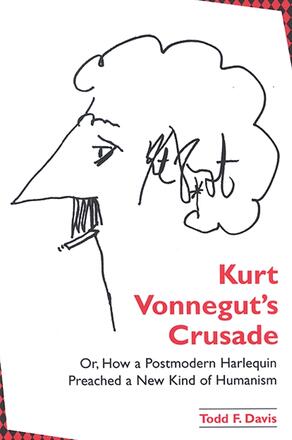
Kurt Vonnegut's Crusade; or, How a Postmodern Harlequin Preached a New Kind of Humanism
Alternative formats available from:
Explores the moral and philosophical underpinnings of Vonnegut’s work.
Description
"I've worried some about why write books when presidents and senators and generals do not read them, and the university experience taught me a very good reason: you catch people before they become generals and senators and presidents, and you poison their minds with humanity. Encourage them to make a better world. " — Kurt Vonnegut
Kurt Vonnegut's desire to save the planet from environmental and military destruction, to enact change by telling stories that both critique and embrace humanity, sets him apart from many of the postmodern authors who rose to prominence during the 1960s and 1970s. This new look at Vonnegut's oeuvre examines his insistence that writing is an "act of good citizenship or an attempt, at any rate, to be a good citizen. " By exploring the moral and philosophical underpinnings of Vonnegut's work, Todd F. Davis demonstrates that, over the course of his long career, Vonnegut has created a new kind of humanism that not only bridges the modern and postmodern, but also offers hope for the power and possibilities of story. Davis highlights the ways Vonnegut deconstructs and demystifies the "grand narratives" of American culture while offering provisional narratives—petites histoires—that may serve as tools for daily living.
Todd F. Davis is Associate Professor of English at Penn State at Altoona. He is coauthor (with Kenneth Womack) of Formalist Criticism and Reader-Response Theory and coeditor (with Womack) of Reading the Beatles: Cultural Studies, Literary Criticism, and the Fab Four (also published by SUNY Press), Mapping the Ethical Turn: A Reader in Ethics, Culture, and Literary Theory, and The Critical Response to John Irving. He is also the author of a book of poetry, Ripe.
Reviews
"In this thoughtful treatment of the works of Kurt Vonnegut, Davis posits the view that this prolific and significant novelist is something of an anomaly: a postmodern humanist. Davis begins with a lengthy and sophisticated discussion of how postmodernism … seems to preclude humanism as a viable vision … and shows that the novelist remains committed to trying to show human beings how to be more decent. " — CHOICE
"Postmodern theory may not strike every reader as the best frame for understanding Vonnegut's work, but Davis's effort requires that readers revisit and reconsider—worthwhile endeavors in this case. " — ForeWord
"Davis's book is an engaging examination of the issue at the heart of all Vonnegut's fiction — Vonnegut's humanism. With acumen and grace, Davis exposes Vonnegut's ongoing relevance to the twentieth and twenty-first centuries and illustrates how Vonnegut manages to retain his status as one of the most important figureheads in postmodern literature while remaining socially conscious and humane. Kurt Vonnegut's Crusade should be mandatory reading for all students, fans, and scholars of Vonnegut's canon. " — Kevin Alexander Boon, editor of At Millennium's End: New Essays on the Work of Kurt Vonnegut
"Kurt Vonnegut has been studied (and argued about) for nearly forty years, but no one had thought to examine his readership until now. Todd Davis's book not only resolves ethical problems, but also clarifies Vonnegut's unique appeal—which, thank goodness, is to what's best in all of us. " — Jerome Klinkowitz, author of The Vonnegut Effect
"As in its subject's own novels, there is a deceptive depth to Todd Davis's book on Kurt Vonnegut. Although writing in the voice of a scholar employing a standard close-reading strategy, Davis in fact engages some of the most crucial fissures in postmodern studies: the role, function, and value of ethics, humanism, and, ultimately, literary achievement in postmodern narrative. Davis's clear prose makes these complex issues decipherable and debatable for both academics and more casual fans of Vonnegut and postmodern fiction. " — Edward Watts, author of An American Colony: Regionalism and the Roots of Midwestern Culture